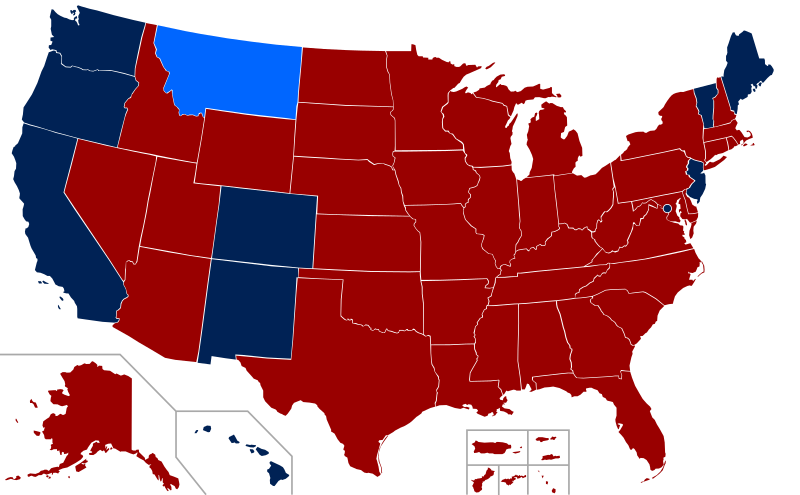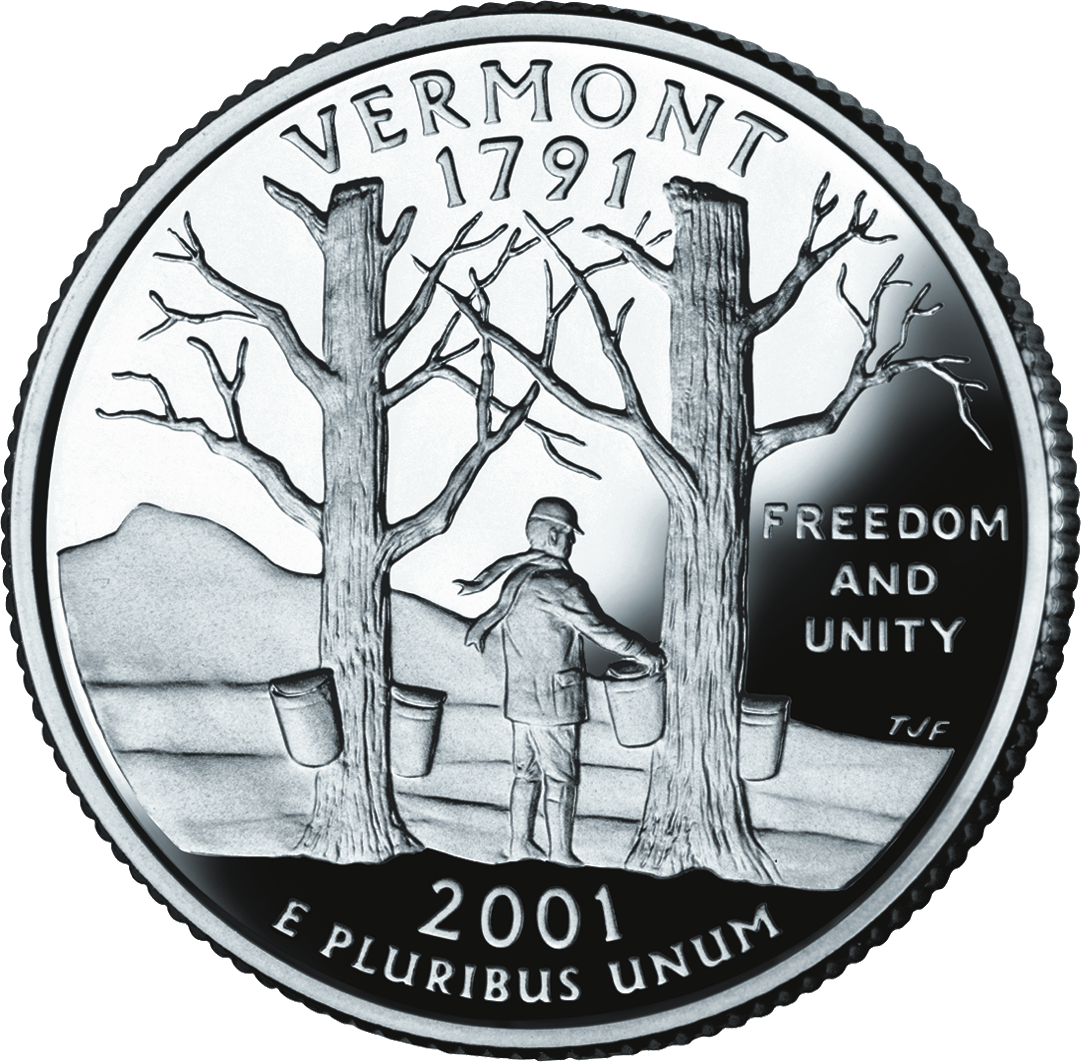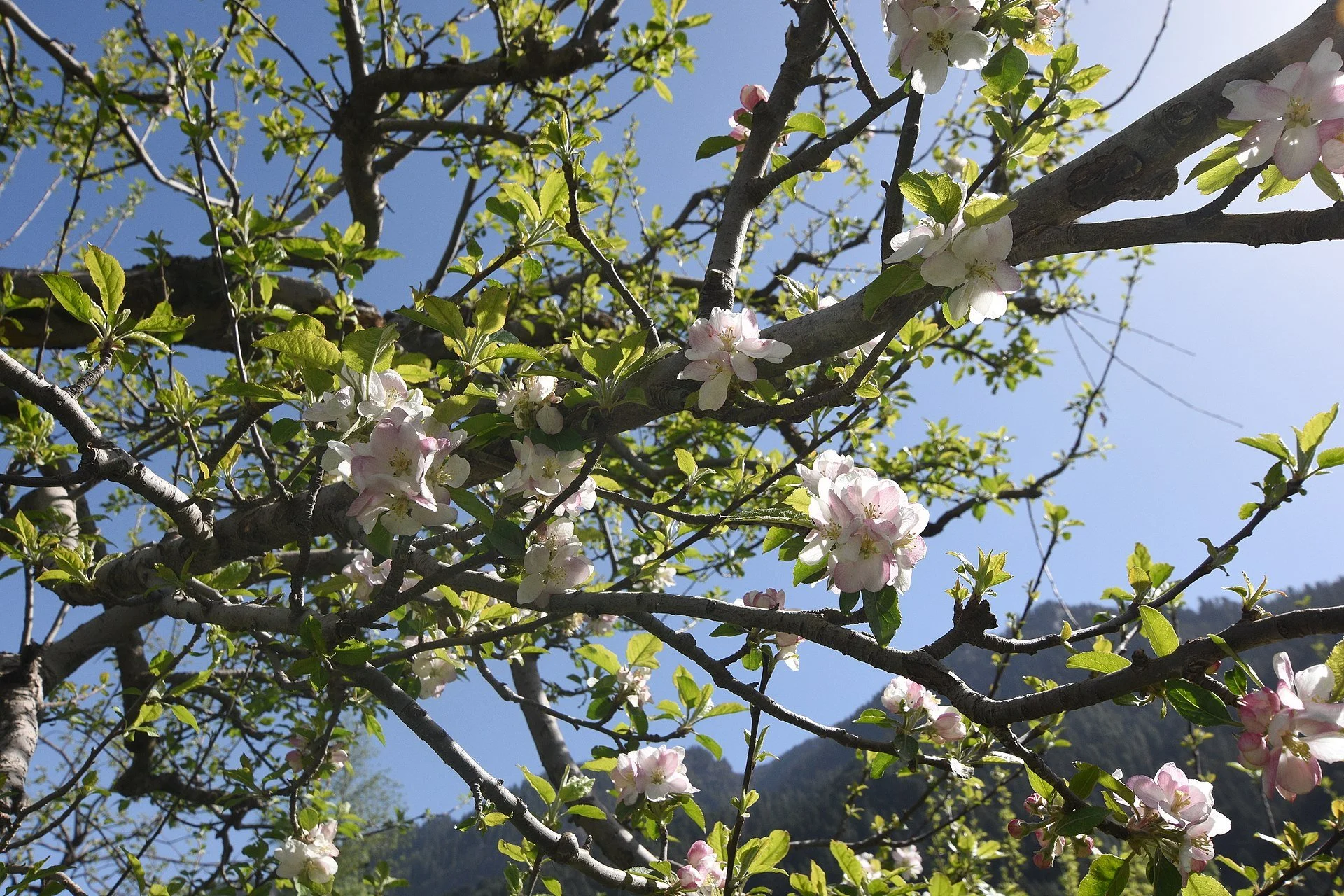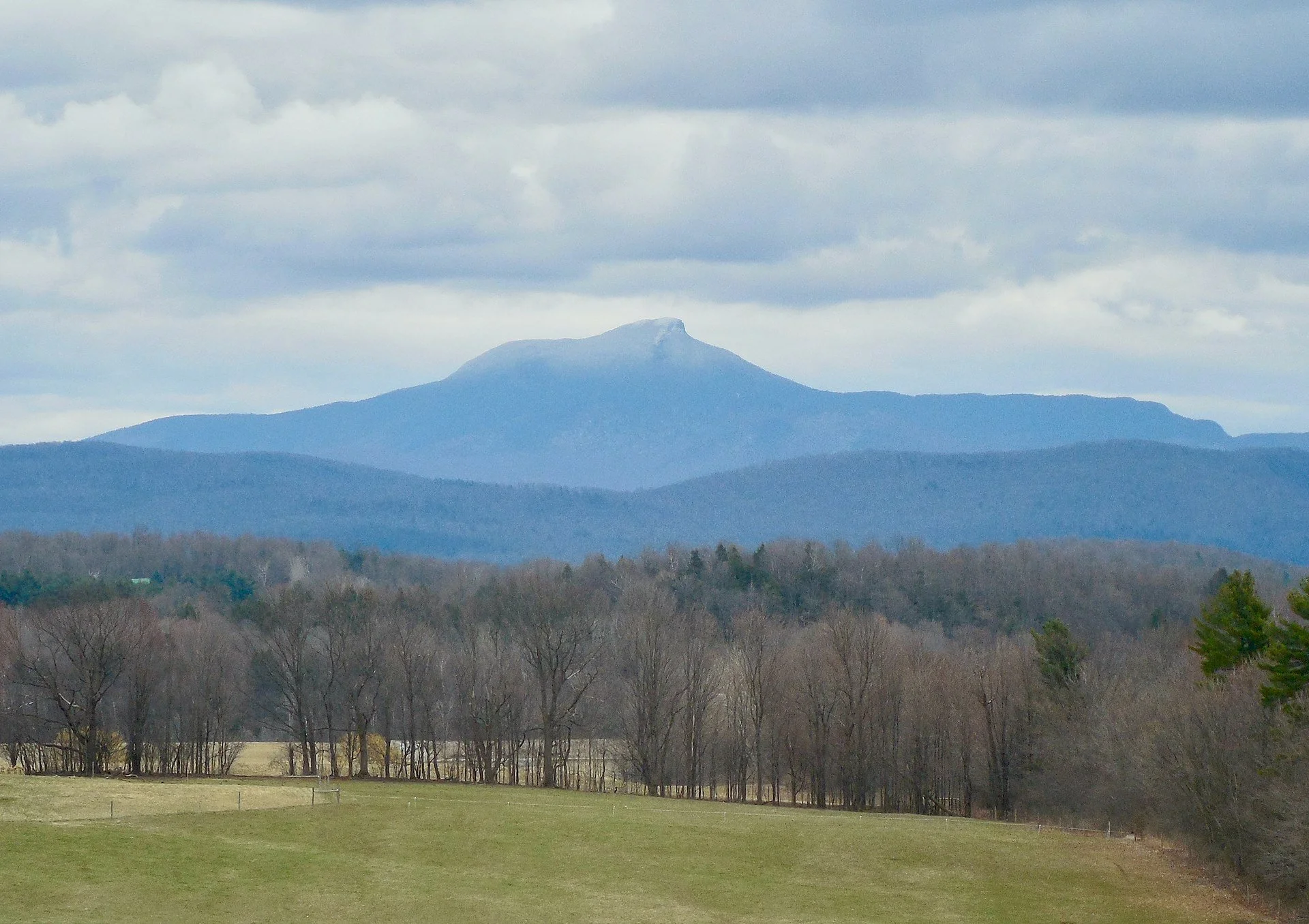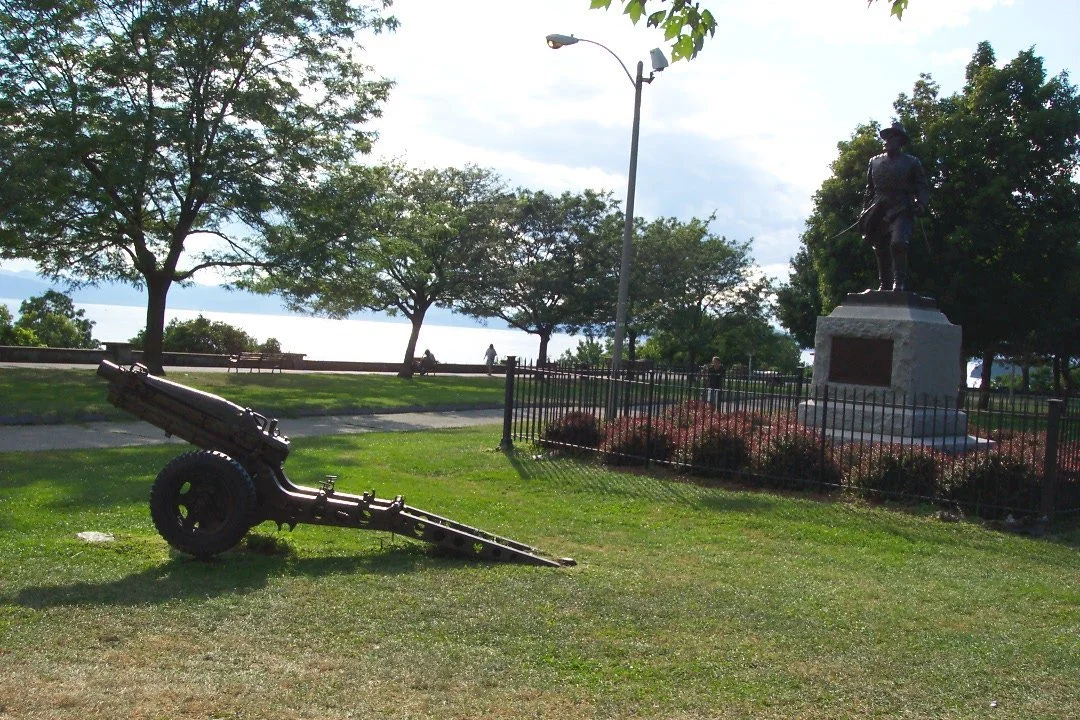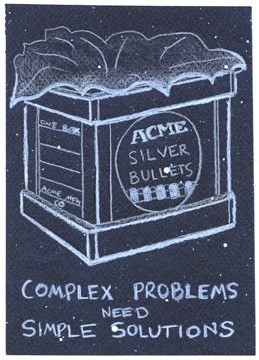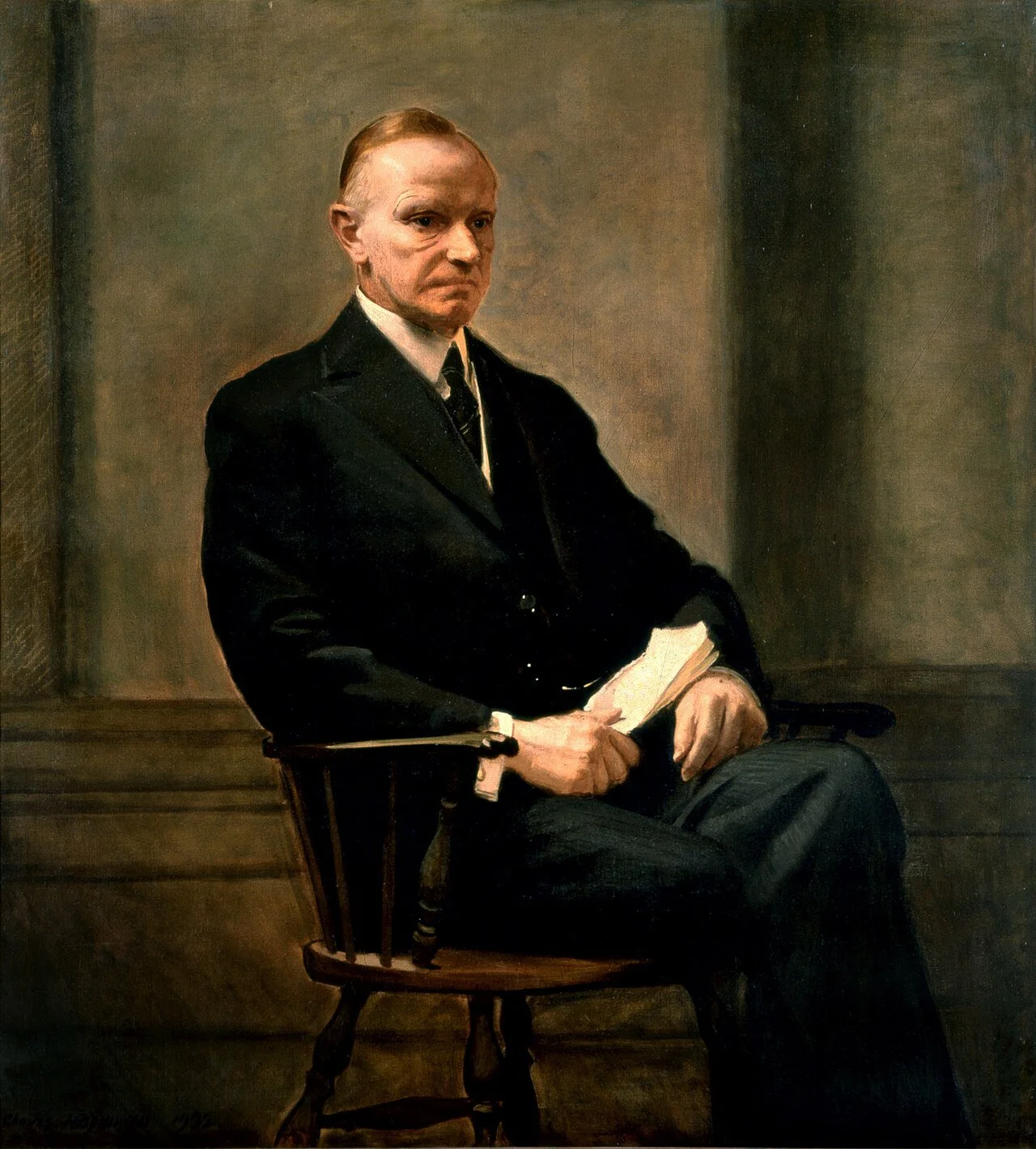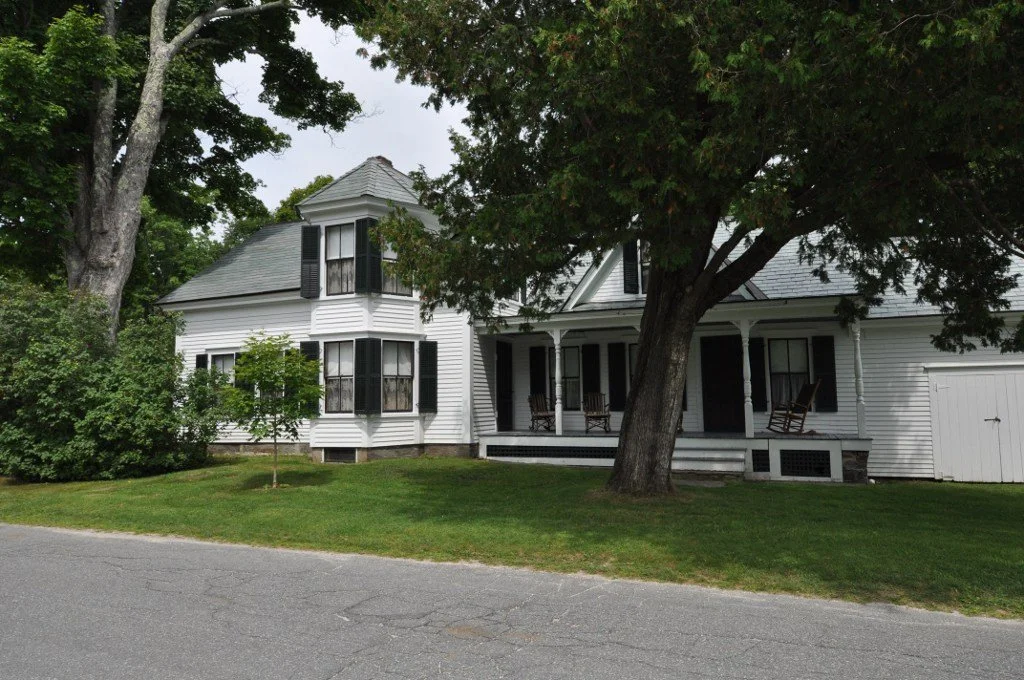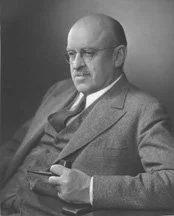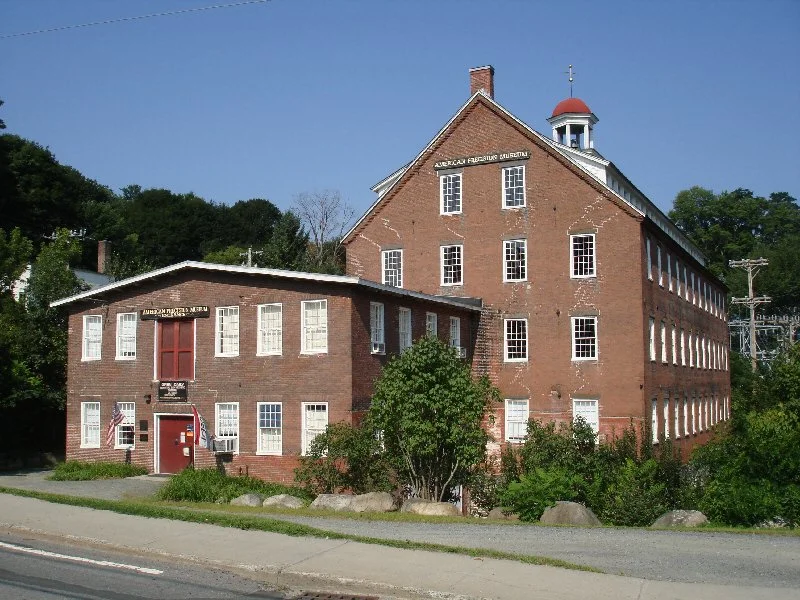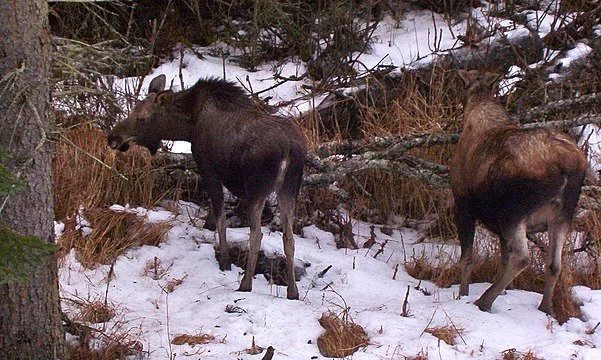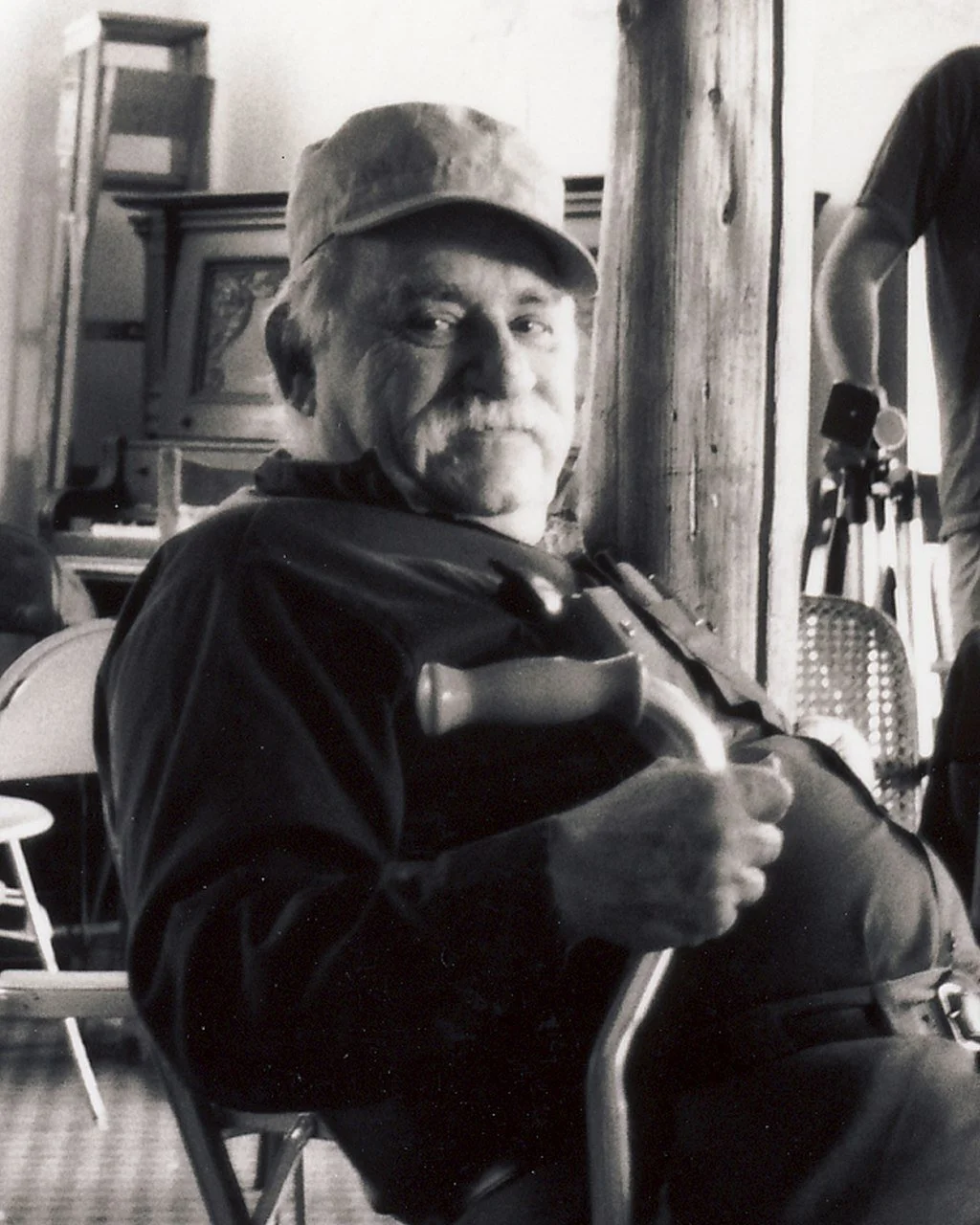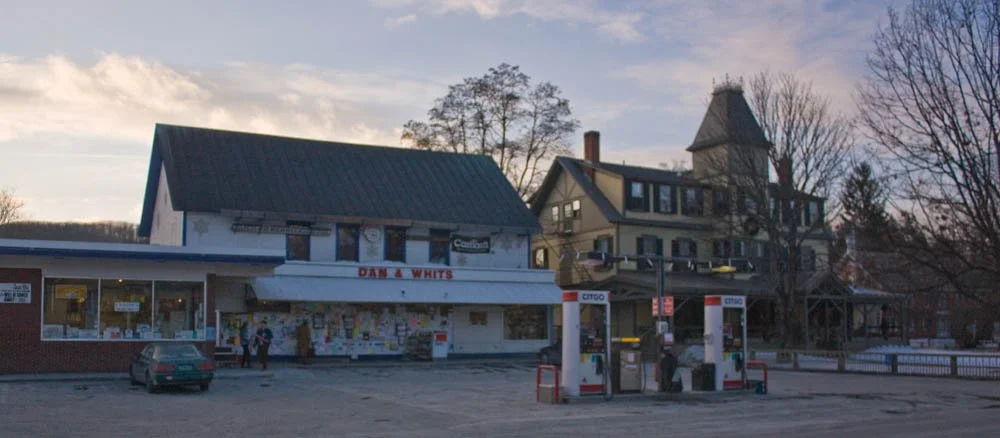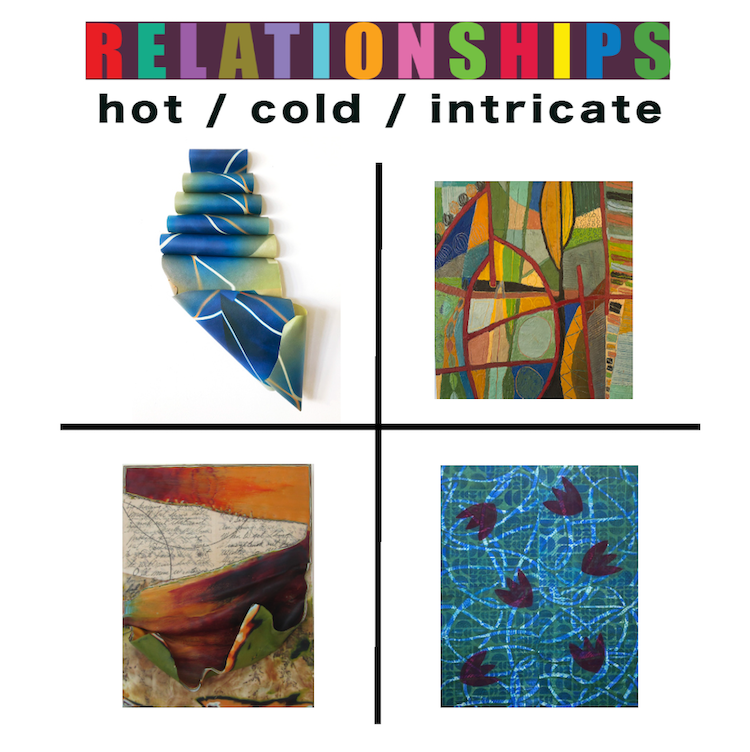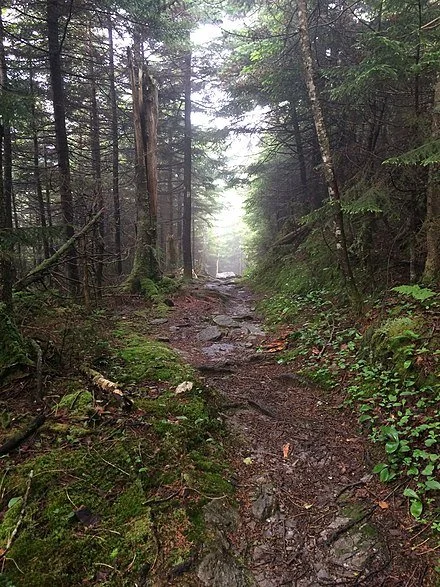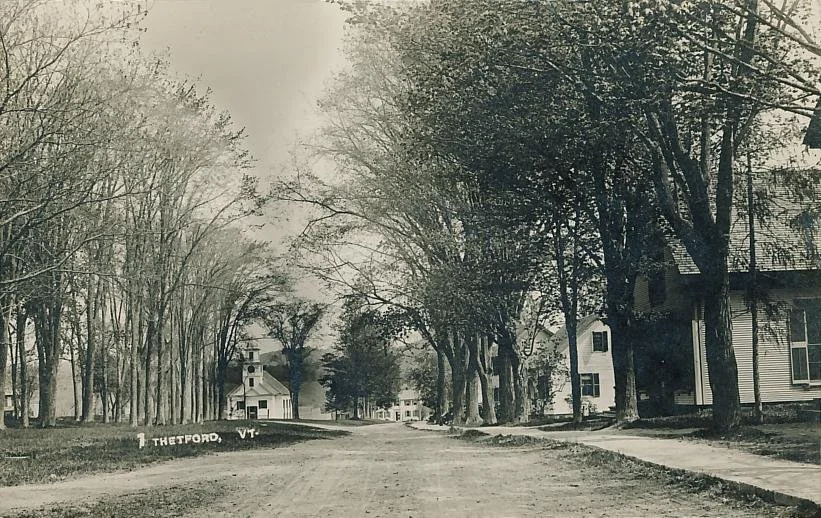
Debby Waldman: Driving to Vermont to arrange to die
Legality of assisted suicide in the U.S. It’s clearly legal in dark blue states, legal in light blue Montana under a court order and illegal in red states.
Text From Kaiser Family Health News
In the 18 months after Francine Milano was diagnosed with a recurrence of the ovarian cancer she thought that she’d beaten 20 years ago, she traveled twice from her home in Pennsylvania to Vermont. She went not to ski, hike, or leaf-peep, but to arrange to die.
“I really wanted to take control over how I left this world,” said the 61-year-old who lives in Lancaster. “I decided that this was an option for me.”
Dying with medical assistance wasn’t an option when Milano learned in early 2023 that her disease was incurable. At that point, she would have had to travel to Switzerland — or live in the District of Columbia or one of the 10 states where medical aid in dying was legal.
But Vermont lifted its residency requirement in May 2023, followed by Oregon two months later. (Montana effectively allows aid in dying through a 2009 court decision, but that ruling doesn’t spell out rules around residency. And though New York and California recently considered legislation that would allow out-of-staters to secure aid in dying, neither provision passed.)
Despite the limited options and the challenges — such as finding doctors in a new state, figuring out where to die, and traveling when too sick to walk to the next room, let alone climb into a car — dozens have made the trek to the two states that have opened their doors to terminally ill nonresidents seeking aid in dying.
At least 26 people have traveled to Vermont to die, representing nearly 25% of the reported assisted deaths in the state from May 2023 through this June, according to the Vermont Department of Health. In Oregon, 23 out-of-state residents died using medical assistance in 2023, just over 6% of the state total, according to the Oregon Health Authority.
Oncologist Charles Blanke, whose clinic in Portland is devoted to end-of-life care, said he thinks that Oregon’s total is likely an undercount and he expects the numbers to grow. Over the past year, he said, he’s seen two to four out-of-state patients a week — about one-quarter of his practice — and fielded calls from across the U.S., including New York, the Carolinas, Florida and “tons from Texas.” But just because patients are willing to travel doesn’t mean it’s easy or that they get their desired outcome.
“The law is pretty strict about what has to be done,” Blanke said.
As in other states that allow what some call physician-assisted death or assisted suicide, Oregon and Vermont require patients to be assessed by two doctors. Patients must have less than six months to live, be mentally and cognitively sound, and be physically able to ingest the drugs to end their lives. Charts and records must be reviewed in the state; neglecting to do so constitutes practicing medicine out of state, which violates medical-licensing requirements. For the same reason, the patients must be in the state for the initial exam, when they request the drugs, and when they ingest them.
State legislatures impose those restrictions as safeguards — to balance the rights of patients seeking aid in dying with a legislative imperative not to pass laws that are harmful to anyone, said Peg Sandeen, CEO of the group Death With Dignity. Like many aid-in-dying advocates, however, she said such rules create undue burdens for people who are already suffering.
Diana Barnard, a Vermont palliative-care physician, said some patients cannot even come for their appointments. “They end up being sick or not feeling like traveling, so there’s rescheduling involved,” she said. “It’s asking people to use a significant part of their energy to come here when they really deserve to have the option closer to home.”
Those opposed to aid in dying include religious groups that say taking a life is immoral, and medical practitioners who argue their job is to make people more comfortable at the end of life, not to end the life itself.
Anthropologist Anita Hannig, who interviewed dozens of terminally ill patients while researching her 2022 book, The Day I Die: The Untold Story of Assisted Dying in America, said she doesn’t expect federal legislation to settle the issue anytime soon. As the U.S. Supreme Court did with abortion in 2022, it ruled assisted dying to be a states’ rights issue in 1997.
During the 2023-24 legislative sessions, 19 states (including Milano’s home state of Pennsylvania) considered aid-in-dying legislation, according to the advocacy group Compassion & Choices. Delaware was the sole state to pass it, but the governor has yet to act on it.
Sandeen said that many states initially pass restrictive laws — requiring 21-day wait times and psychiatric evaluations, for instance — only to eventually repeal provisions that prove unduly onerous. That makes her optimistic that more states will eventually follow Vermont and Oregon, she said.
Milano would have preferred to travel to neighboring New Jersey, where aid in dying has been legal since 2019, but its residency requirement made that a nonstarter. And though Oregon has more providers than the largely rural state of Vermont, Milano opted for the nine-hour car ride to Burlington because it was less physically and financially draining than a cross-country trip.
The logistics were key because Milano knew she’d have to return. When she traveled to Vermont in May 2023 with her husband and her brother, she wasn’t near death. She figured that the next time she was in Vermont, it would be to request the medication. Then she’d have to wait 15 days to receive it.
The waiting period is standard to ensure that a person has what Barnard calls “thoughtful time to contemplate the decision,” although she said most have done that long before. Some states have shortened the period or, like Oregon, have a waiver option.
That waiting period can be hard on patients, on top of being away from their health-care team, home, and family. Blanke said he has seen as many as 25 relatives attend the death of an Oregon resident, but out-of-staters usually bring only one person. And while finding a place to die can be a problem for Oregonians who are in care homes or hospitals that prohibit aid in dying, it’s especially challenging for nonresidents.
When Oregon lifted its residency requirement, Blanke advertised on Craigslist and used the results to compile a list of short-term accommodations, including Airbnbs, willing to allow patients to die there. Nonprofits in states with aid-in-dying laws also maintain such lists, Sandeen said.
Milano hasn’t gotten to the point where she needs to find a place to take the meds and end her life. In fact, because she had a relatively healthy year after her first trip to Vermont, she let her six-month approval period lapse.
In June, though, she headed back to open another six-month window. This time, she went with a girlfriend who has a camper van. They drove six hours to cross the state border, stopping at a playground and gift shop before sitting in a parking lot where Milano had a Zoom appointment with her doctors rather than driving three more hours to Burlington to meet in person.
“I don’t know if they do GPS tracking or IP address kind of stuff, but I would have been afraid not to be honest,” she said.
That’s not all that scares her. She worries she’ll be too sick to return to Vermont when she is ready to die. And, even if she can get there, she wonders whether she’ll have the courage to take the medication. About one-third of people approved for assisted death don’t follow through, Blanke said. For them, it’s often enough to know they have the meds — the control — to end their lives when they want.
Milano said she is grateful she has that power now while she’s still healthy enough to travel and enjoy life. “I just wish more people had the option,” she said.
In June, Milano headed to Vermont to open a second six-month window to receive medical aid in dying. After a six-hour drive, she crossed the state’s border and opted to Zoom with a doctor rather than drive three more hours to meet in person, as she had done the first time.
Debby Waldman is a Kaiser Family Health Plans journalist.
Related Topics
‘The pitiful knaves’
Vermont quarter dollar coin
Ho—all to the borders! Vermonters, come down
With your britches of deerskin, and jackets of brown;
With your red woolen caps, and your moccasins come
To the gathering summons of trumpet and drum
Come down with your rifle!—let grey wolf and fox
Howl on in the shadow of primitive rocks;
Let bear feed securely from pig-pen and stall;
Here's two-legged game for your powder and ball
[Chorus]
And cheer, cheer, the green mountaineer!
And cheer, cheer, the green mountaineer!
[Verse 2]
On the south came the Hessians, our land to police;
And, armed for the battle, while canting of peace;
On our East came the British, the red-coated band
To hang up our leaders and eat up our land
Ho—all to the rescue! for Satan shall work
No gain for the legions of Hampshire and York!
They claim our possession,—the pitiful knaves—
The tribute we pay, shall be prisons and graves!
[Chorus]
And cheer, cheer, the green mountaineer!
And cheer, cheer, the green mountaineer!
[Verse 3]
We owe no allegiance; we bow to no throne;
Our ruler is law, and the Law is our own;
Our leaders themselves are our own fellow-men
Who can handle the sword, and the scythe, and the pen
Hurrah for Vermont! For the land that we till
Must have sons to defend her from valley and hill;
Our vow is recorded—our banner unfurled;
In the name of Vermont we defy all the world!
[Chorus]
And cheer, cheer, the green mountaineer!
And cheer, cheer, the green mountaineer!
And cheer, cheer, the green mountaineer!
“Song of the Vermonters,’’ by John Greenlead Whittier (1807-1892), Massachusetts poet and abolitionist.
Chris Powell: Silly anti- ‘climate change’ drives in Vermont and Connecticut
MANCHESTER, Conn.
While it may be hard to believe, Vermont seems to have gotten ahead of Connecticut in "climate change" craziness.
The Green Mountain State has just passed a law allowing itself to charge big oil and natural gas companies for the cost to the state of the "greenhouse gases" emitted by use of the fuel sold by the companies between 1995 and 2024. The state itself will choose the criteria for calculating the cost. Mainly Vermont wants to blame the oil and gas companies for the extensive damage done in the state last year by terrible flooding.
Under the new law it won't matter that the fuel products on which "climate change" is being blamed were and remain not just perfectly legal but also crucial to modern civilization. No matter also that nearly everyone in Vermont has been using those products ever since they became available. Vermont wants to blame the manufacturers of the fuel products, not their users, the people for whom those products were made -- the people without whose demand the products wouldn't have been made at all.
Indeed, the mere manufacture of fuel didn't emit the "greenhouse gases" Vermont is complaining about. The use of them did.
Like all other states, Vermont already has a fuel tax. If the state wants to recover what it believes are its costs of the "climate change" caused by use fuel, it can raise that tax and get the money from the parties responsible for their use: its own residents. And if the state really believes that "climate change" disasters are being caused by the use of oil and gas, Vermont already should have outlawed those fuels.
Of course the legislators who passed the law don't really believe its premises. The new law is just a money grab that, if ever implemented, will be nullified in one court or another after years of expensive litigation. But until then legislators who voted for the law will pose as saviors of the environment.
Meanwhile Connecticut's climate alarmists want Gov. Ned Lamont and leaders of the Democratic majority in the General Assembly to put "climate crisis" legislation on the agenda of a special legislative session that is to be called to make a fix in motor vehicle assessment law, a special session that was supposed to be brief.
The "climate crisis" bill at issue passed the House of Representatives during the recent regular session but was stalled by some of the majority Democrats in the Senate who thought that it was more important to guard against climate change by modifying municipal zoning. (The Senate's Republican minority almost certainly would have opposed the "climate crisis" bill, as the Republican minority in the House did.)
After declaring a "climate crisis," the bill would just specify options for reducing "greenhouse gases" by 2050 -- safely beyond the political lifespans of most current legislators. Actual sacrifices would await another day.
Whatever one thinks of "climate change" and its causes -- natural phenomena or manmade phenomena arising only in recent decades -- the "climate crisis" legislation is silly. For even if "climate change" is substantially the result of the use of oil, gas and coal as fuel, Connecticut can do nothing meaningful about it.
The state could outlaw those fuels and shut down all its industry requiring a smokestack and all its transportation requiring a tailpipe and the rest of the country and the rest of the world would continue to use those fuels. Since Connecticut's contribution to the world's "greenhouse gases" is tiny, the state would only disadvantage itself without achieving any measurable reduction in those gases.
Even a national policy of eliminating oil, gas and coal as fuel would have little impact on "greenhouse gases" worldwide, since the developing world, including industrial giant China, will continue to use those fuels until something better comes along. Only a worldwide solution is worth pursuing -- if there really is a problem to solve.
Chris Powell has written about Connecticut government and politics for many years (CPowell@cox.net).
A state for small business
At Dan and Whit’s General Store, in Norwich, Vt.
“I represent a rural state and live in a small town. Small merchants make up the majority of Vermont's small businesses and thread our state together. It is the mom-and-pop grocers, farm-supply stores, coffee shops, bookstores and barber shops where Vermonters connect, conduct business and check in on one another.’’
Peter Welch (born 1947), U.S, senator from Vermont
‘Their giddy arrival’
Apple tree in blossom
“I might have stayed in this world
forever without seeing them,
or feeling their giddy
arrival in my skin….”
—From “Flowering Tree,’’ by Nora Mitchell (born 1956), Vermont-based poet and teacher
‘And you’re two months back’
Western face of Camel's Hump Mountain (elevation 4,079 feet), in Vermont.
— Photo by Niranjan Arminius
“….You know how it is with an April day
When the sun is out and the wind is still,
You're one month on in the middle of May.
But if you so much as dare to speak,
A cloud comes over the sunlit arch,
A wind comes off a frozen peak,
And you're two months back in the middle of March….’’
— From “Two Tramps in Mud Time,’’ by Robert Frost (1874-1963)
Speech by Vermont senator about Joseph McCarthy’s witch hunt: ‘With the scalp of a pink Army dentist’
Vermont Sen. Ralph Flanders (1880-1970). He was a rock-ribbed, old-fashioned New England Republican.
March 9, 1954
Mr. President, this brief talk is in the nature of advice to the junior Senator from Wisconsin. I had hoped that he would be present. I do not feel constrained to put off the talk in his absence. I find that he is to be in New York today. Not knowing when he can be present, I proceed.
Mr. President, the junior Senator from Wisconsin interests us all – there can be no doubt about that – but also he puzzles some of us. To what party does he belong? Is he a hidden satellite of the Democratic Party, to which he is furnishing so much material for quiet mirth? It does not seem that his Republican label can be stuck on very tightly, when, by intention or through ignorance, he is doing his best to shatter the party whose label he wears. He no longer claims or wants any support from the Communist fringe. What is his party affiliation?
One must conclude that he is a one-man party, and that its name is “McCarthyism,” a title which he proudly accepted.
The junior Senator from Vermont finds much to praise and much to deplore in McCarthyism, as he sees it displayed on the national stage. That which is praiseworthy is the vigorous and effective housecleaning which it undertakes.
In January of last year the Republican family moved into quarters which had been occupied by another family for twenty long years. The outgoing family did not clean up before it left. The premises were dirty indeed.
Into these dirty premises the junior Senator from Wisconsin charged with all the energy and enthusiasm of a natural-born housekeeper. He found dirt under the rug. He found dirt behind the chiffonier. He found dirt in all the corners. He found cobwebs and spiders in the cellarway. All this dirt he found and displayed, and the clean-up he personally superintended.
Of course it was not done quietly. In the long years of my life I have come to the conclusion that natural-born housewives seldom work quietly – particularly when cleaning premises left by someone else. There is much clatter and hullabaloo. The neighbors across the backyard fence are apprised of each newly discovered deposit of grime. Much of this in his long life has the junior Senator from Vermont seen and heard, but he has never seen or heard anything to match the dust and racket of this particular job of housecleaning. Perhaps these extremes are necessary if a one-man party is to be kept in the headlines and in the limelight.
Now the question before the nation is this: Is the necessary housecleaning the great task before the United States, or do we face far more dangerous problems, from the serious consideration of which we are being diverted by the dust and racket? It is the deep conviction of the junior Senator from Vermont that we are being diverted, and to an extent dangerous to our future as a nation. He feels called upon to say to the junior Senator from Wisconsin: “Right about face.” Having looked inward for so long, let him now look out outward.
When he and we look outward, what do we see? We see defeat in Korea, and the Iron Curtain moved down the truce line by force of arms, in defiance of the principles and purposes of the United Nations. We find the same aggression pursued in Indochina, with our country assigned to play the part of a supporter of colonialism, and persuaded to enter into negotiations which are foredoomed to parallel, to a greater or less extent, the foreordained conclusions of the Korean truce.
In Europe we see Italy ready to fall into communist hands. We find France irresolute, palsied in thought and action, where her Communists well organized and sure of their ground. Saddest of all, we see Great Britain nibbling at the drugged bait of trade profits, which benumbed her judgments when Japan moved into Manchuria and Mussolini moved into Ethiopia. Then followed, in logical sequence, the fall of the Rhineland, Austria, Czechoslovakia, and Poland, and the Second World War.
Let us look to the south. In Latin America there are sturdy strong-points of freedom. But there are likewise, alas, spreading infections of communism. Whole countries are being taken over. Other countries, not yet captured, are undergoing relentless infiltration.
There is little need to spotlight the other trouble spots in Asia and Africa. If this massive advance is not stemmed, our future place in the world is clearly foreordained. The Iron Curtain, now protecting Communist countries, will be drawn about the United States and Canada, the last remnants of the free world. This will not need to be accomplished by defeating us militarily. It will result from the capture of the rest of the world by infiltration and subversion. We will be left with no place to trade and no place to go except as we are permitted to trade and to go by the Communist masters of the world.
Of course the attack may come from the air – sudden, catastrophic. This is possible, though unlikely, for why should the Soviet Government subject the Russian cities to destruction when it is doing so well by infiltration and subversion? In either case, the dangerous attack is from without, not from within. Look out, Senator, and see what is creeping upon us.
In very truth, the world seems to be mobilizing for the great battle of Armageddon. Now is a crisis in the agelong warfare between God and the Devil for the souls of men.
In this battle of the agelong war, what is the part played by the junior Senator from Wisconsin? He dons his war paint. He goes into his war dance. He emits his war whoops. He goes forth to battle and proudly returns with the scalp of a pink Army dentist. We may assume that this presents the depth and seriousness of Communist penetration in this country at this time.
If he cannot view the larger scene and the real danger, let him return to his housecleaning. Let him sweep out all the dirt that is under the rugs, back of the furniture and in the remotest corners. After he has done all this, let him take a pocket handkerchief and rub over the tops of the doors and window frames. He may find a little dust there too. But let him not so work as to conceal mortal danger in which our country finds itself from the external enemies of mankind.
Let me appeal to him in the words of a great hymn, written by St. Andrew of Crete about the year of our Lord 700:
Christian, dost thou see them
On the holy ground,
How the hosts of darkness
Compass thee around?
Christian, up and smite them,
Counting gain but loss;
Smite them, Christ is with thee,
Soldier of the cross.
Small, precious and laconic
Main Street in Danby, Vt.
— Photo by Redjar
Battery Park, overlooking the Burlington Waterfront and Lake Champlain
— Photo by Tania Dey
“All in all, Vermont is a jewel state, small but precious.”
— Pearl S. Buck (1892-1973), Nobel Prize-winning novelist. She lived in Danby, Vt.
xxx
“I don’t have a PR rep. I live in Vermont.”
Colin Trevorrow (born 1976), film director who has lived in Burlington. Vt.
The quiet way
“Raking leaves can be totally Zen,’’ by Adam Blue, in his show “Adam Blue: Astroexplorer — A Guide to the Heavens,’’ at Maine Street Museum, White River Junction, Vt., through Nov. 18.
The museum says:
The exhibition provides concise and sometimes blunt discourse on current environmental, political and social issues, as well as pop culture.
Lillian Gish on the White River, at White River Junction, being filmed for the 1920 silent film Way Down East.
White River Junction in 1989. It was a major railroad center.
‘Brave little state’
Official presidential portrait of Calvin Coolidge
The Coolidge Homestead, in Plymouth Notch, Vt. It’s now a museum.
— Photo by Magicpiano
The ‘‘Brave Little State of Vermont’’’ speech is a name given to remarks delivered by Vermont native and President Calvin Coolidge at Bennington on Sept. 21, 1928.
Coolidge was touring his home state by train to assess progress of recovery following the devastating 1927 flood. Considered taciturn and nicknamed "Silent Cal," Coolidge demonstrated unusual emotion in delivering his extemporaneous response to the human suffering and loss he had witnessed.
Text of Coolidge's remarks follow:
My fellow Vermonters:
For two days we have been traveling through this state. We have been up the East side, across and down the West side. We have seen Brattleboro, Bellows Falls, Windsor, White River Junction and Bethel. We have looked toward Montpelier. We have visited Burlington and Middlebury. Returning we have seen Rutland.
I have had an opportunity of visiting again the scenes of my childhood. I want to express to you, and through the press to the other cities of Vermont, my sincere appreciation for the general hospitality bestowed upon me and my associates on the occasion of this journey.
It is gratifying to note the splendid recovery from the great catastrophe which overtook the state nearly a year ago. Transportation has been restored. The railroads are in a better condition than before. The highways are open to traffic for those who wish to travel by automobile.
Vermont is a state I love. I could not look upon the peaks of Ascutney, Killington, Mansfield, and Equinox, without being moved in a way that no other scene could move me. It was here that I first saw the light of day; here I received my bride, here my dead lie pillowed on the loving breast of our everlasting hills.
I love Vermont because of her hills and valleys, her scenery and invigorating climate, but most of all because of her indomitable people. They are a race of pioneers who have almost beggared themselves to serve others. If the spirit of liberty should vanish in other parts of the Union, and support of our institutions should languish, it could all be replenished from the generous store held by the people of this brave little state of Vermont.
‘If I can find it’
Ralph E. Flanders
“I’m a New Englander and most of us are pack rats. We save everything, old bedsprings, empty cartons, clothing that went out of style fifty years ago, and trunks full of papers. Every once in a while it’s worth it if I can find what I’ll looking for.’’
— Ralph E. Flanders (1880-1970), U.S. senator from Vermont (1946-1959), mechanical engineer, industrialist. and writer. A Republican, he helped put an end to the career of the demagogic liar Sen. Joseph McCarthy (R.-Wis.) His base was Springfield, Vt.
Black River Falls, in Springfield, Vt., about 1910
Except in March
Vermontasaurus sculpture in Post Mills, Vt., in 2010
— Photo by HopsonRoad
‘‘Vermont, Designed by the Creator for the Playground of Continent.’’
— The Green Mountain State’s first state-sponsored tourist brochure (1911)
#Vermont
‘Balanced on a human scale’
Old Constitution House, in Windsor, Vt., where the Constitution of the Vermont Republic was signed, in 1777.
“When people who have never lived in New Hampshire or Vermont visit here,
they often say they feel like they've come home. Our urban center, commercial
districts, small villages and industrial enterprises are set amid farmlands and
forests. This is a landscape in which the natural and built environments are
balanced on a human scale. This delicate balance is the nature of our
’community character.’ It's important to strengthen our distinctive, traditional
settlement patterns to counteract the commercial and residential sprawl that
upsets this balance and destroys our economic and social stability."
~ Richard J. Ewald, in his book Proud to Live Here.
American Precision Museum at the old Robbins and Lawrence factory, in Windsor. The building is said to be the first U.S. factory at which precision interchangeable parts were made, giving birth to the precision machine-tool industry
‘Deeper in’
“Sumac thickets by the roadbed, either side,
spangled by snow and the big moon’s light.
Deeper in, evergreens, taller, darker,
but still undark in that light, this weather.’’
— From “Inviting the Moose: A Vision,’’ by Sydney Lea (born 1942), a former poet laureate of Vermont who has taught at various New England colleges.
So there’s no uranium mining in Vermont
Murray Bookchin, who moved to Vermont from New York City.
“You see my residence is in New England, and New England has a strong tradition of localism. What is ordinarily called election day in most of the United States is called town meeting day in Vermont. And there are town meetings that are to one degree or another active, however vestigial their powers. They, for example, banned uranium mining in the Green Mountains of Vermont. And the governor of the state was forced to knuckle down to that even though he wanted uranium mining. A number of town meetings—not very large a number but at least a majority of those who had it on their agenda—voted for a nuclear arms moratorium. They’re taking up issues like that at town meetings. What we would like to do if we could is foster, at least in Vermont, greater local power, discussions around issues that are not simply immediate local issues. We would like to raise broad issues at these town meetings and turn them into discussion arenas and interlink the various assemblies and town meetings or try to help create growth of this type of local municipal power—communal power—a view toward, very frankly, establishing a grass-roots self-management institutional framework or network. Now this may be a pure dream, a hopeless ideal, but it’s meaningless for us to go to factories, I can tell you that much.’’
— Murray Bookchin (1921-2006), author, democratic socialist, writer and environmentalist.
‘Utterly without pretense’
Dan & Whit’s, the famous general store in Norwich, Vt., where Peter Welch lives when not in Washington.
“I represent a rural state and live in a small town. Small merchants make up the majority of Vermont’s small businesses and thread our state together. It is the mom-and-pop grocers, farm-supply stores, coffee shops, bookstores and barber shops where Vermonters connect, conduct business and check in on one another.”
— Peter Welch (born 1947), Vermont’s sole member of the U.S. House.
xxx
“Vermonters are not only charmless of manner, on the whole; they are also, as far as I can judge, utterly without pretense, and give the salutary impression that they don't care ten cents whether you are amused, affronted, intrigued, or bored stiff by them. Hardly anybody asked me how I liked Vermont. Not a soul said 'Have a nice day!'‘'
“Vermonters, it seems to me, are like ethnics in their own land. They are exceedingly conscious of their difference from other Americans, and they talk a great deal about outsiders, newcomers, and people from the south.”
— Jan Morris (1926-2020), British historian, author and famed travel writer
Finding quiet peace in the pandemic
“Move and Flow” (oil and graphite on panel), by Rose Umerlik, in her show “Repose,’’ at Atelier Newport, July 30-Aug. 31.
The gallery says:
“Rose Umerlik is an internationally recognized artist, who maintains a full-time studio practice in Vermont. Her work has always been based on strong ideals she has long held, such as the importance of being able to self-evaluate in a spirit of honesty and having a strong work ethic that helps her be fully present to life. These core values are always reflected in her work.
“During the worldwide pandemic, Rose spent much of the early months of lockdown with her family in quiet peace on their mountainside homestead, raising their firstborn into a world in disrepair. And while in isolation, Rose and her husband only had one task to fulfill: Revel and marinate in their love for their daughter as they watch her grow. Happiness and repose entered the home and established roots there. Their daughter is now almost two years old.
“One of the most trying times in history prevailed yet, through it all, as a new mother with her cherished blossoming family, Rose was able to find an unwavering peace and calm repose.”
Big show at Vermont art museum features exciting ancient medium; see video
See this very unusual and exciting show at the Southern Vermont Art Center's Wilson Museum, Manchester, Vt., through Aug. 14: Hit this link for a video about the show.
It's titled "RELATIONSHIPS: hot, cold, intricate'' and features New England Wax, a regional association of 31 artists who work in encaustic and other wax mediums. The museum notes that encaustic, in Greek, means “to burn in”.
"It is an exciting art medium with a rich history that offers many creative options. Composed of beeswax, tree resin, and pigment applied with a brush or other tools while molten, each layer is fused to the previous one using a heat gun, torch, or other heated implement. Cold wax is a more contemporary medium combined with oil paint or other pigmenting methods. Each of these wax mediums offers many possibilities for translucency, layering, incising, and other techniques in both 2D and 3D work. The exhibiting artists, from the six New England states, use creative interpretations of the RELATIONSHIPS theme to demonstrate the many expressive and unique possibilities of working with wax-based materials.''
‘Lost truly at last’
A section of Vermont’s Long Trail, which from the Massachusetts line to Quebec.
“I think I sought it. I think I
could not know myself un-
til I did not know where I was.
Then my self-knowledge con-
tinued for a while while I found
my way again in fear
and reluctance, lost truly at
last….’’
— From “Lost” (in the woods), by Hayden Carruth, an American poet and teacher who lived many years in the town of Johnson, in northern Vermont.
The world goes its own way
Thetford, Vt., in 1912.
“Most people believe ….that any problem in the world can be solved if you know enough; Vermonters know better.’’
— John Gardner (1933-1982) in his novel October Light, set in rural Vermont.

